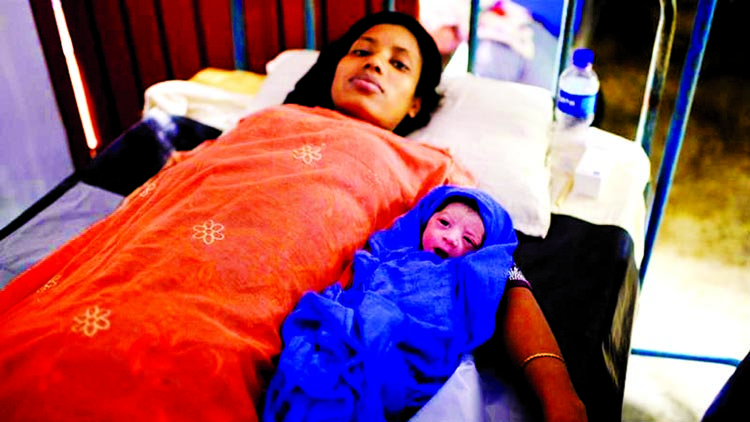
About 35 midwives trained by the United Nations Population Fund (UNFPA) have been deployed in the two government-run refugee camps in Cox’s Bazar to provide maternity heath care services to Rohingya women.
According to an UNFPA estimate, about 24,000 pregnant and lactating Rohingya women have arrived in Bangladesh since the recent influx of Rohingya refugees began August 25.
“Midwives are attending pregnant, lactating Rohingya women and girls staying in the refugee camps over the past few weeks. They are providing emergency medical services as well as caring for pregnant women and young mothers,” said Sathya Doraiswamy, chief of health at UNFPA.
They have already delivered about 200 babies.
More than 430,000 Rohingya Muslims have fled Bangladesh following a Myanmar military offensive that began after reported attacks on August 25 on security posts and an army camp.
Among them, 60 per cent were women, including many pregnant women and young mothers, and children, according to the United Nations.
“They crossed into Bangladesh walking for days. They were hungry, thirsty, sick and emotionally traumatized,” said Rondi Anderson, UNFPA’s midwifery specialist.
“Pregnant women and young mothers in the camps are now in safe space and good care with the midwives. There are many challenges. But even in these difficult circumstances, there is some happiness for everyone at the safe birth of a child,” said Anderson.
The midwives at the camps have been trained for crisis situations including floods.
The midwives are part of a national programme backed by the Bangladesh government and supported by UNFPA and the World Health Organization to improve maternal health and reduce infant mortality, particularly in the country’s rural areas.
Tania Aktar, who joined the Kutupalong health centre earlier as a midwife, said the centre has been receiving many Rohingya patients everyday.
“We have conducted 12 deliveries in the past 21 days,” she said.
She added, “Some of the Rohingya women, who come for delivery, are without food for days, lack proper clothes, and have no money to buy other needs. They are really helpless. Many of them have delivered babies on the roadside.”
Najma Akter, another midwife, said the drugs and services at the health centre are free. “We visit the community inside the refugee camps and counsel them to avail our services for a secured delivery,” she said.

